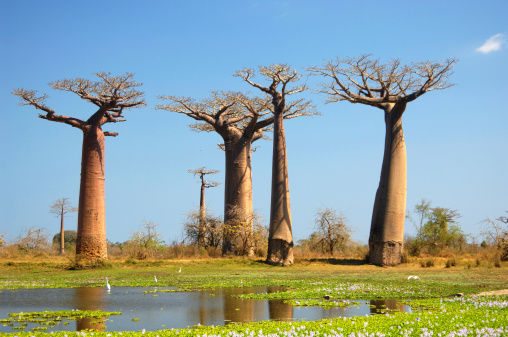Have you ever wanted to visit a corner of the world that is home to species not found elsewhere, is off the beaten path, and is located very close to the equator? If so, you might consider a trip to the island of Madagascar. Madagascar is the fourth-largest island on earth, and is home to a full five percent of all known plant and animal species. The terrain is extremely diverse (you can visit the rainforest and the desert in a span of a few hours), as are the locals, who have emigrated to the island from various areas of the surrounding islands and parts of Africa. Most of the time, visitors to Madagascar use a tour to arrange their itinerary. Here are some considerations to keep in mind:
-
You will probably need some medical care before you go. Malaria is a risk in Madagascar. In order to prevent it, your doctor might want you to take a course of antibiotics before, during and after your stay. You’ll also want to bring along a mosquito net unless you are staying only in very high-end hotels. Make sure that you are caught up on your routine vaccinations, and talk to your doctor about having typhoid, yellow fever, hepatitis A and rabies vaccines before you go. Take precautions such as carrying a first aid kit along with anti-diarrheal and other medications, and don’t drink the tap water or accept ice cubes made from tap water. Bottled water is safe.
-
Make sure your travel documents are in order. You’ll need a return ticket as well as a passport that is valid for six months past the date of your return. Anyone traveling into Madagascar also will need a visa. Usually these are issued for 30 or 90 days, and it’s best to get it before you leave the USA.
-
Be ready for an adventure. Madagascar is not home to well-paved roads and four-star restaurants. Instead, you’ll be traveling through diverse landscapes and will likely be spending a lot of time outdoors. Pack sunscreen and insect repellant, and enjoy experiences like hiking through the Parc National de Ranomafana and looking for lemurs; taking a 12-hour bus trip to Camp Bandro, where you’ll be treated to canoe safaris and exquisitely prepared meals; or spending the day with the 120 orphans at Akany Avoko, a home for homeless children.
Your travel agent can help you choose the best time to visit Madagascar (you’ll want to avoid the cyclone season of January through March) and can recommend a tour group, which is usually preferable for those traveling to the island for the first time. It can be difficult to find English speakers if you are traveling alone, and there have been some reports of Westerners being stopped by the police and questioned. If you do not speak French or the local dialects fluently, it’s best to have someone with you who is familiar with the customs, language and safe areas of the island.








